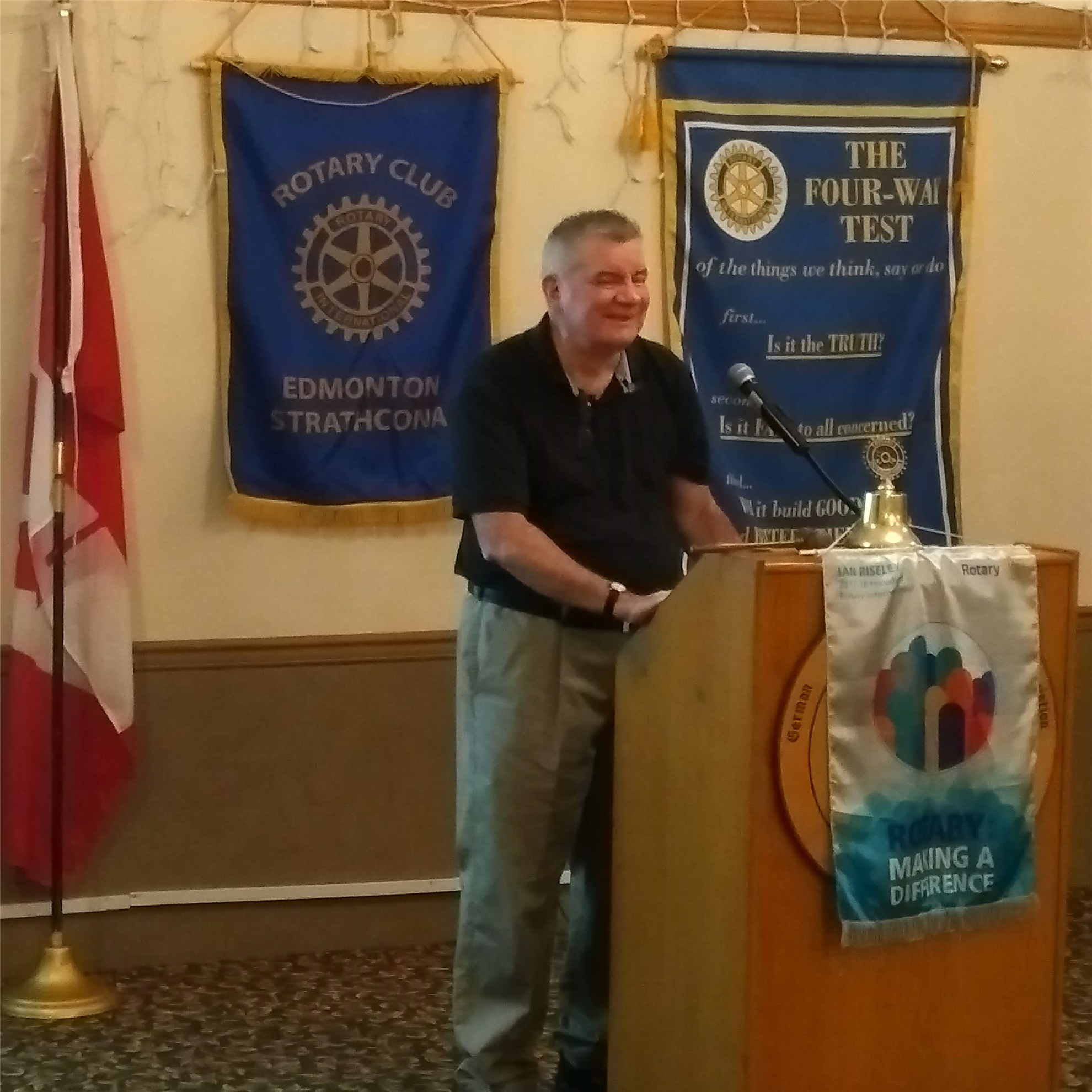This summary of Tuesday’s presentation was prepared by Vi Hughes from notes taken by Audrey Martyn.
This Tuesday we heard again from Les Campbell, pictured, Genealogical Courses and Outreach chairman of the Edmonton Genealogical Society, who gave us some more information on family research. He described his personal experiences, when in 1995 his father asked him to help find more information about his grandfather. He gathered up what information they had at home such as certificates of birth, marriage, and death as well as family photos to start his study. His grandparent’s marriage license gave him the name of the place they had come to Alberta from and his grandmother’s maiden name. It also contained both great grandfather’s names. He found that they had used his grandmother’s family name as a middle name for their sons. It also gave him the location of their marriage, the date and their religion. With their death certificates he was more cautious accepting the information as the personal information such as full name, birth date and place was provided by a second person and could have been inaccurate. He said that the only really accurate way to determine your origin is with DNA testing.
He found that old photos and postcards were a good source of information as to dates, names of relatives and even places they had lived. He said that some other places that are good to look into for information include local libraries and archives as their records are free to access. The Alberta Genealogical Society also maintains a library with a variety of information for family research. The LDS Library in Salt Lake City is another excellent resource to check out and you may even be lucky enough to find an already published book on some of your family members. Census records are another place to look for information, although the information they contain may not be entirely accurate as it could have been supplied by a secondary source. You need to be a bit of a detective to put together the truth.
Many online resources are also free and easily searched. Some large search websites such as familysearch.org are also free. Ancestry charges a monthly, Semi-Annual or Yearly fee for it’s use. Learning more about historical localities where your ancestor’s lived is also helpful. He also found that attending conferences was very useful. In the end, although he did not really have a personal interest in family history, he was glad he had done it for his father.
